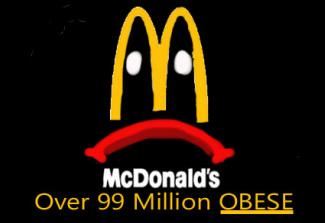
Media theory is often used as a guideline in consumer culture research. Media theory tends to focus on the concept consumer agency. In this view, the consumer is an individual who can transform popular cultural texts into useful information that will help improve his or her own life. Because of this, consumer culture studies often include social and political issues.
Material culture
Material culture refers a variety of objects and their meanings within contemporary society. This study draws from social sciences, humanities and other disciplines to analyze relationships between objects and people. It examines how we value and perceive material culture, as well as its sentimental and monetary values.

The authors use a comparative approach to examine the material culture and connections between consumer goods in pre-industrial times and the present. Three different types of documentation were used to examine the social meanings and associations of material goods with human and other social structures.
Status consciousness
A growing phenomenon in consumer culture is the emergence of status consumption. This is a phenomenon where consumers purchase goods and services based upon their social status and social prestige. Researchers have developed a scale to measure this phenomenon. It has been shown to be related to both purchasing intention and brand equity. Women who identify as status conscious purchase high-end brands and are more likely to have strong brand associations.
It's fascinating to see the world of status consumption, which reveals many paradoxes. It is not easy to see why a product which is expensive in one country might be cheaper in another. It is however important to grasp the phenomena from a nuanced perspective of status consumption.
Trends in consumer culture
Many forces converged following the Industrial Revolution of 1890s. This is what led to modern consumer culture. These forces changed how everyday goods such as clothes, appliances, automobiles, and other products were produced. This enabled companies to learn how to coordinate their production methods and distribution, which created the infrastructure for consumer culture.

Many consumer culture movements have taken the form activist movements or boycotts. The National Consumers League for Women encouraged women to boycott departmental stores over sweatshop conditions. The NCL promoted the idea of consumption as work, and that consumers could also be economic actors while also performing unpaid labor. NCL claimed that consumption transforms purchases into useful goods and it promotes social reproduction.
FAQ
Who came up with the term Pop Music?
Frank Zappa invented it. He used the word pop music to describe his style of music.
He said that he wanted to write music that would appeal to everyone. His music is called pop music because of this.
Zappa also invented the phrase "You Know It's Pop when ..."", which signifies that something is popular if there are many people who enjoy it. Michael Jackson's Thriller albums are among the most-sold.
Zappa's definitions of pop music are different than the current. Today, pop music includes all types of music. But, there were only certain types of music that was considered pop back in those days.
What are some good aspects of pop culture
There are some things about pop culture that aren't bad. Pop culture gives people something to talk. Pop culture also helps people express creativity. Pop culture can be used by artists to promote their works.
Pop culture has the greatest quality, in my opinion. It brings people together. Everyone wants to watch the same shows. Everyone likes the same music. Everyone enjoys the same films. Pop culture makes it easy to connect.
Problem is, not all pop culture has the same health benefits. Many films glorify violence. Some programs on television make fun of those with mental disabilities. Some bands also encourage fans to take drugs.
So what do we do when pop culture has negative aspects?
Pop culture should be avoided. It shouldn't influence us. It can have negative effects on our health. It can lead to crime. It can even cause problems in our relationships.
Pop culture has a positive or negative impact on society. Does it promote good values? Are people being indoctrinated to do terrible things?
Finally, let us ask ourselves whether or not we are happy in the world that we live. Are we satisfied with the music we listen? What TV shows do you watch? The clothes we wear
We must be responsible for our actions if we are to care about the future. It is up to us to choose the kind of world that we want. Once we have decided what kind of world we want, then we can choose the best pop culture.
What does pop culture teach us?
Our society today places more importance on material goods than all other things. This is especially true of young people. They spend hours per day looking at screens. They watch movies, play video games, and surf the web. All of these distract them from the task at hand, which is to complete school work. They end up failing classes as a result.
In today's world, everyone wants to be accepted. That means being popular. Popularity depends on money, clothes, and other possessions. This leads some people to do things that aren't right.
We have become dependent on technology. We have all the information we need thanks to technology. Not everything is accurate. False rumors can be found all over the Internet. These rumors quickly spread because people share them through social media. It's easy and quick to post something without verifying whether it is true.
People have lost the ability of thinking critically. People believe everything they see on the Internet. They trust what they hear on television and in magazines. They stop thinking for themselves. Instead, they follow the crowd.
We lose control of our lives when we depend on others to tell we what's going on. Pop culture teaches us to depend on others. It can also lead to lazy people. We don't always see the truth, but it is there.
What are some examples from pop culture in 2020?
Music is rapidly changing. This year, artists like Travis Scott, Post Malone and Billie Eilish all reached number one on Billboard's Hot 100 charts. This was a remarkable achievement for any artist.
The same applies to streaming services. Spotify reported that they streamed over 10 billion hours of audio content last year alone. This is 5x the amount of audio content Spotify users listen to today, compared to just five year ago.
This has led to a dramatic shift in how media is consumed. People now spend most of their time-consuming content rather than creating it.
Today everyone from toddlers to retirees has access to a device capable of playing back high-quality audio content. This means that anyone can record, edit, mix, and release their music.
It's no longer necessary to go to university and study classical instrumentation to be able to play your favorite song. It's easy to download an app and add your voice. Then upload the videos to YouTube.
Don't worry if your not interested in making music. You can always watch other people do it. You will find many channels dedicated to creating videos of songs from covers to parodies.
What are examples of pop culture today?
Pop Culture is the art form of the 21st century. It encompasses all forms of popular entertainment, from music, film, TV, video games, fashion, advertising, comics, etc. This term was created by Neil Postman, author of Amusing Ourselves and Death (1985). He defined "pop" as a style of mass communication that uses cheap tricks and formulaic devices to create an illusion of spontaneity and uniqueness.
He did however point out that most people don't feel genuine enjoyment because they are trained to seek media experiences which make them feel superior. He also argued that cultural expression has contributed to the decline in critical thinking skills among young adults.
Pop culture can also refer to popular culture and consumerism.
What is the origin of pop music?
It was an accident. The accident that someone accidentally knocked down a piano in 1920 caused the first song's creation.
The recording company liked the song and decided to release it single.
This was the first single to be recorded.
Pop music has been the most loved form of musical entertainment since then.
How can we avoid the dangers of pop culture?
We must first recognize when pop music is influencing our lives. Then, we need to ensure that we are not being influenced. These are some ways to avoid bad influences.
-
Avoid watching Game Of Thrones and other violent shows.
-
Do not spend too much time on the Internet. Read books instead.
-
Pay less attention to television. Spend your free time on healthy activities.
-
Make sure you are careful what you post online. After comments have been posted, they can't be deleted.
-
You should ensure that all websites you visit are secure. Before you give out any personal information, check the websites.
-
Do not let anyone pressure or make you do dangerous things.
Talk to an adult about if you think you might be addicted to pop culture. You can contact your local library, or the National Center For Missing & Exposed Children (1-800-583-LOL).
Statistics
- [17][18][19]Definition[edit]According to author John Storey, there are various definitions of popular culture. (en.wikipedia.org)
- Latinos represent roughly 19% of the U.S. population. (npr.org)
- According to Dictionary.com, popular culture, or low culture as it is sometimes referred to is comprised of the “cultural activities or commercial products reflecting, suited to, or aimed at the tastes of the general masses of people” (7/21/19). (socialsci.libretexts.org)
- Yet a Nielsen study shows they account for 42% of the country's most-watched content on streaming services. courtesy Nielsen (npr.org)
- In 1987, US films captured 56% of the European film market. (socialsci.libretexts.org)
External Links
How To
What are some famous pop culture references?
Americans were obsessed by space travel in 1960s. Star Trek was then the most popular television show.
The original series aired from 1966 to 1969 on NBC. It featured William Shatner, Leonard Nimoy, Mr. Spock, DeForest Kelley, James Doohan, Dr. McCoy, and James Doohan as Scotty. (Wikipedia)
In 1967, the series was the subject of the first feature-length film. Paramount Pictures released the film, titled "Star Trek." Robert Wise directed this movie. The cast included William Shatner. Leonard Nimoy. DeForest Kelley. James Doohan. Walter Koenig. Majel Barrett. Roland Nichelle Nichols. George Takei. Grace Lee Whitney. (Wikipedia)
The second season began airing in 1968. This season featured the crew travelling back in time to 1969. (Wikipedia)
The third season of the series began airing in 1971. This season introduced a new character called Commander Richard A. Morn. He was a Starfleet officers who was originally born on Earth 2063. (Wikipedia)
A live-action spinoff of Star Trek: Planet of the Apes was also produced during this period. It aired from 1972 to 1974. (Wikipedia)
The TV series' fourth season debuted on television in 1973. This season introduced Ensign Ro Laren, and Lt. Ilia, two new characters. Both were played by Marina Sirtis. (Wikipedia)
In 1975, the fifth series of the television series aired. It was the last episode of the television series before it went on hiatus. (Wikipedia)
There were several attempts to revive the series after it was cancelled. Some of them included a 1977 pilot episode entitled "Where No Man Has Gone Before," which failed to find a network or studio partner. (Wikipedia)
Star Trek: New Voyages also aired as an animated series in 1998. It aired only 13 episodes. (Wikipedia).
After a seven years hiatus, the sixth episode of the television series was aired in 2009. It was titled "Enterprise". It aired for five seasons, ending in 2013. (Wikipedia)
Also, there were three feature films made in this time period. The first movie was released on September 12, 1979. It was called "Star Trek: The Motion Picture." Nicholas Meyer directed it. It featured William Shatner (starring James Doohan), Leonard Nimoy. Walter Koenig. Majel Bart Roddy and Ricardo Montalban. (Wikipedia)
The next two movies were released in 1982 and 1987, respectively. They were known as "Star Trek II. The Wrath of Khan," and "Star Trek III. The Search For Spock." Nicholas Meyer directed these films. (Wikipedia)
In 2001, the seventh season of the television series aired. It was entitled "Encounter at Farpoint". It was the premiere episode in the history of the show without any guest stars. (Wikipedia)
2005 was the last episode of the television series. It was called "All Good Things ...".". It was written and directed by Ronald D. Moore. David Livingston directed it. (Wikipedia.)
A brand new Star Trek TV series premiered in 2008 It was called "Trek Nation". It's currently being aired by CBS. (Wikipedia). "Trek Nation" tells the story of a group of people who come from diverse backgrounds and form their own version of United Federation of Planets. Their goal? To help other planets find peace. (Wikipedia). "Trek Nation", which is a concept showing how diverse people can unite and create good, is very intriguing. (YouTube Video)
You should read books on the timeline of Star Trek. Start with Gary Wolfe's book Star Trek Chronology. You can find many other books online.